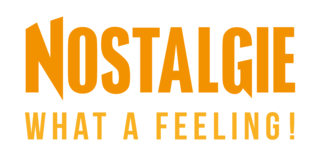
Flanders is the Dutch-speaking northern portion of Belgium and one of the communities, regions and language areas of Belgium. However, there are several overlapping definitions, including ones related to culture, language, politics and history, and sometimes involving neighbouring countries. The demonym associated with Flanders is Fleming, while the corresponding adjective is Flemish. The official capital of Flanders is the City of Brussels, although the Brussels Capital Region has an independent regional government, and the government of Flanders only oversees the community aspects of Flanders life in Brussels such as (Flemish) culture and education.

In Belgium, the French Community refers to one of the three constituent constitutional linguistic communities. Since 2011, the French Community has used the name Wallonia-Brussels Federation, which is controversial because its name in the Belgian constitution has not changed and because it is seen as a political statement. The name "French Community" refers to Francophone Belgians, and not to French people residing in Belgium. As such, the French Community of Belgium is sometimes rendered in English as "the French-speaking Community of Belgium" for clarity, in analogy to the German-speaking Community of Belgium.
RTBF is a public-service broadcasting organisation delivering radio and television services to the French-speaking Community of Belgium, in Wallonia and Brussels. Its counterpart in the Flemish Community is the Dutch-language VRT, and in the German-speaking Community it is BRF.
HUMO is a popular Dutch-language Belgian weekly radio and television supermarket tabloid.

The Vlaamse Radio- en Televisieomroeporganisatie, or VRT (Dutch: [ˌveːjɛrˈteː], is the national public-service broadcaster for the Flemish Community of Belgium.

De Tijd is a Belgian newspaper that mainly focuses on business and economics. It is printed on salmon pink paper since May 2009, following the example of its colleagues Financial Times, Het Financieele Dagblad, FT Deutschland and many more.

DPG Media is a Belgian publishing company that owns media assets in Belgium, Denmark, and the Netherlands. The firm is owned by the Van Thillo family.
Mediafin is a Belgian media group. The company was established in 2005 when it was bought by De Persgroep and Rossel. Its name was switched from Publisher Tijd to Mediafin. De Persgroep and Rossel hold a fifty percent stake in Mediafin.
Groupe Rossel is a major media group in Brussels and Wallonia, the French-speaking part of Belgium. The daily newspaper Le Soir is one of their main and most successful publications. The other daily the company owns is the subsidiary SudPresse, which publishes daily newspapers including La Capitale and La Meuse. Together with De Persgroep, Rossel purchased the two broadsheets De Tijd and L'Echo, and merged them into the new Mediafin. Rossel also owne several French newspapers, including La Voix du Nord. Rossel led a consortium that acquired the French magazines Psychologies and Première.

Ultratop is an organization which generates and publishes the official record charts in Belgium. Ultratop is a non-profit organization, created on the initiative of the Belgian Entertainment Association (BEA), the Belgian member organization of the International Federation of the Phonographic Industry. Two parallel set of charts are concurrently produced and published, one on behalf of Belgium's mainly Dutch-speaking Flanders region, and the other catering to the nation's mainly French-speaking region of Wallonia.
Mediahuis is a newspaper & magazine publishing, distribution, printing, TV, radio and online media company founded in 2014 with assets in Belgium, the Netherlands, Ireland and Luxembourg. Mediahuis publishes daily newspaper titles in Belgium, the Netherlands and Ireland as well as regional titles, and is involved in broadcasting a number of Dutch and French language TV and radio stations.
Wouter Vandenhaute is a Belgian Entrepreneur, Television producer and former sports-journalist. He is currently managing director of the Belgian media holding De Vijver, which includes the TV production company Woestijnvis and TV channel VIER. Vandenhaute married VRT sports journalist Catherine Van Eylen.

La UneFrench pronunciation: [la yn] is a Belgian national television channel, owned and operated by the French-language public-service broadcasting organization RTBF. La Une is the equivalent of Flemish station Eén, of the Flemish broadcaster VRT.
Television in Belgium was introduced in 1953 and began with one channel each in Dutch and French. The country is heavily cabled, with 93% of households watching television through cable as of 2003.

Medialaan was a Belgian company, best known as parent company of the first Flemish commercial television station: VTM. In 2018 De Persgroep acquired a 50 percent stake in Medialaan and rebranded the company as DPG Media.

The Bulletin is an English-language quarterly magazine and website published in Brussels, Belgium. Founded in 1962 as a weekly, it is the oldest magazine in English in Belgium and remains one of the oldest English-language publications in Continental Europe. It claims a circulation of 10,000, mostly from the large expatriate community of the European Union's capital. Publication became quarterly in 2012.

Nostalgie Vlaanderen(Nostalgie Flanders) is a private Belgian radio station broadcasting in Flanders and Brussels but can also be heard in some parts of Wallonia, and is dedicated to mainly music of the 1970s, 1980s and 1990s. Nostalgie Flanders is created on 20 March 2008, and is owned by Concentra Group, Corelio NV and the NRJ Group.
Roularta Media Group is a publishing and broadcasting company based in Roeselare, Belgium.
Vitaya is a former women's magazine published in Belgium which was founded in 2001. The magazine was owned by De Persgroep. In February 2017, Vitaya was merged with another Persgroep title, Goed Gevoel.











